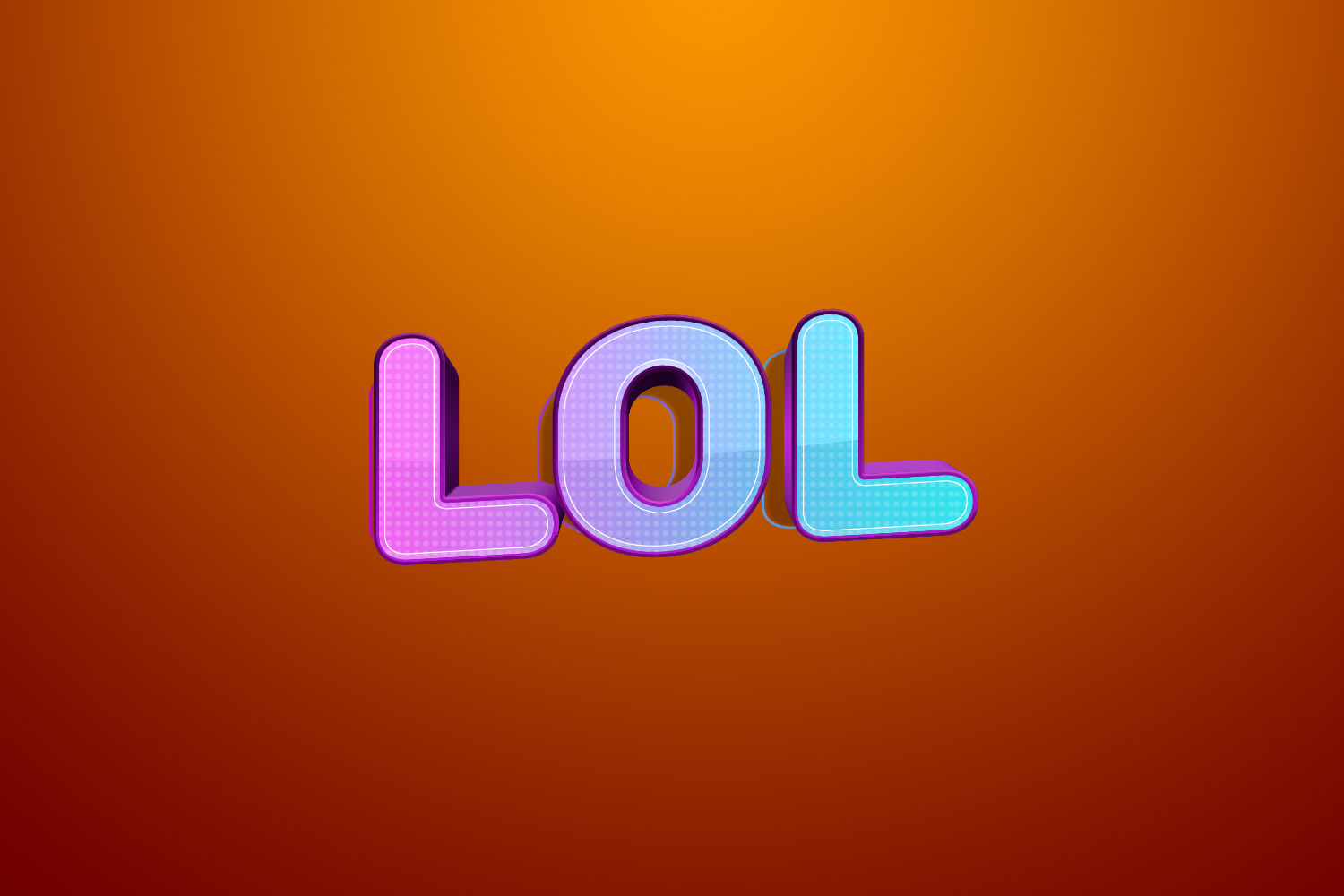Table of contents
LOL is read and heard everywhere these days. You must be familiar with this popular expression! But do you know what it means exactly? Do you know the contexts in which to use it, this famous LOL and other popular expressions among the new generation? Here I explain everything you need to know about LOL, from its origin to its proper use and its variants.
What does LOL mean?
LOL is the acronym of the English expression Laughing Out Loud, perfect for less stress, right?
You will find this term written as well in lower case (lol) as in upper case (LOL), but also in an extended form (LOOOOL) or in a repeated form (LOLOLOLOLOL). Some people have fun varying its spelling, with loul, loule, lawl… But in all these possible and unimaginable versions, it is the same word, used to mark a great thundering laugh.

Where does this expression come from?
The famous LOL comes from the United States and, like any good trend, has quickly spread to many countries. Although this very popular expression only appeared in our French dictionaries in 2013, it has been used for much longer! It seems that it was already seen in emails and newsletters in the early 1990s.
What is sure is that LOL became very practical in the early 2000s: at that time, cell phone ownership was becoming more democratic, but mobile plans were much more expensive, and without the option of unlimited calls or SMS. To send messages to your friends, you had to limit the number of characters as much as possible, and all the abbreviations were good to take in order not to pay an exorbitant cost…
As time went by, LOL became popular all over the world, so much so that it became an essential part of all written conversations: chats, instant messengers, social networks, Internet forums, dating applications… And this, even if, nowadays, we don’t need to restrict ourselves in our messages at all. I assure you, LOL is everywhere!
How to use LOL properly?
As I explained, LOL was originally used to mark a frank, strong and communicative laugh. A word of only 3 letters, very practical to succinctly replace an “Ah, you make me laugh!”… But we can see that LOL is now used in a much wider context than that, so much so that it can even be used as punctuation in discussions. It is used to mark irony, mockery, or even spite (for example You, don’t even talk to me lol or You’re going to teach me life? LOL LOL LOL).
If this expression is known by everyone, it is nevertheless quite familiar… So, avoid using it at any time or with anyone! It is preferable to reserve the best LOLs for friends or close people, as well as for exchanges on the Internet (such as discussion forums, blogs, etc.).
Evolution of the expression “LOL”
LOL is used in writing, since it is logically used to express a laugh that cannot be seen by the person with whom you are exchanging. But don’t be surprised if you hear it spoken! When spoken aloud, it will have a rather mocking, even angry meaning.
Finally, don’t forget that LOL is also the title of a movie, directed by Lisa Azuelos in 2009. Our French film, whose title is based on the American expression, did so well that it was remade in 2012 as LOL USA. That’s what you might call a return to sender, isn’t it?
The use of LOL in other expressions
LOL is the expression of laughter, the punctuation of a sentence, but also a word in its own right in certain cases. The name kikoo lol was created to describe the particular language of young people, using abbreviations, LOL in excess and other joys to write quickly.
For example, I’ve heard “It’s not lols,” meaning “No, it’s not a joke, my friend. And if you hear something like No, but LOL what! it will probably mean I’m hallucinating or Oh, but this is crazy!
A nice change from LOL
MDR is its French equivalent, meaning mort de rire. There are still other French acronyms to vary a little from this English LOL, namely PTDR for pété de rire, or XPLDR (or sometimes XPDR) for explosé de rire. I also recommend the very simple, but just as effective, Haha (Ha Ha or even Ah ah depending on your preference), as well as Hihi, to mark your laugh in a simple and neutral way.
And why not simply punctuate your messages with pretty emojis? As there are hundreds of them, you’re bound to find a little expressive face that totally matches your mood or what you want to convey!
Discover other youthful expressions
LOL is not so recent. Even if it is still widely used, other expressions just as popular and no less effective have made their appearance in the language of our young people. Do you know or use any of them?
I’m not going to explain to you what it means to have the shits, to have a gow, to have a tchoin, to be pissed off, etc. The list is far too long! The list is far too long! However, I will present you some more abbreviations, which you might meet in conversations, by message, but also sometimes in speech:
- IDK = I don’t know
- askip = as far as I can tell
- R = it’s nothing, there is nothing or nothing to say
- NP = No problem
- Down = I’m ok with !
- Pov: Point of view
There is also the very well known BG, which doesn’t really mean Beau Gosse anymore, but rather a friendly way to call someone, like brother or buddy.
I’ll spare you the explanation of DTC and CTB, far too vulgar…
